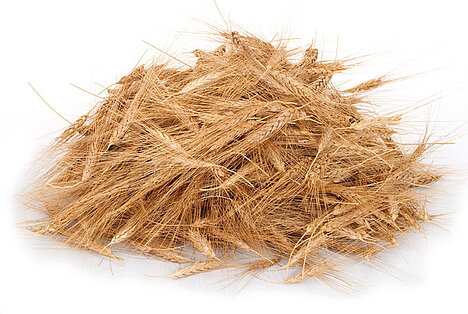Whole wheat

Whole wheat is a form of wheat that contains the whole grain, including the husk and germ. Whole wheat is rich in fiber, vitamins, minerals and antioxidants. But is it also good for dogs? In this article, you can find out more about the advantages and disadvantages of whole wheat for your four-legged friend.
The benefits of whole wheat for dogs
Whole wheat grain can have some health benefits for dogs, especially when fed in moderation. For example, it can help regulate digestion as it makes stools firmer and stimulates bowel movements. It can also increase the feeling of satiety, which can be useful for overweight dogs. Whole wheat also contains important nutrients such as zinc, iron, magnesium and B vitamins, which support the immune system, blood formation and metabolism.
The disadvantages of whole wheat for dogs
However, whole wheat is not suitable for all dogs. Some dogs may be allergic or intolerant to wheat, which can lead to symptoms such as itching, skin rashes, diarrhea or vomiting. If you suspect that your dog has a wheat allergy or intolerance, you should have him checked by a vet and choose a wheat-free diet if necessary. In addition, whole wheat can cause bloating or stomach problems in some dogs, especially if it is fed in large quantities. Therefore, you should always make sure that your dog drinks enough water and that you only give him whole wheat grain as a side dish or supplement to his main food.
Whole wheat can have both advantages and disadvantages for dogs. It depends on how your dog reacts to it and how much you feed him.
If you notice any signs of hypersensitivity or poisoning in your dog, you should see your vet immediately. We are not a substitute for a vet, but we try to be as accurate as possible. Every dog reacts differently and we recommend you get a second opinion or consult your vet if in doubt.
Stay healthy and take good care of your four-legged friend!😊